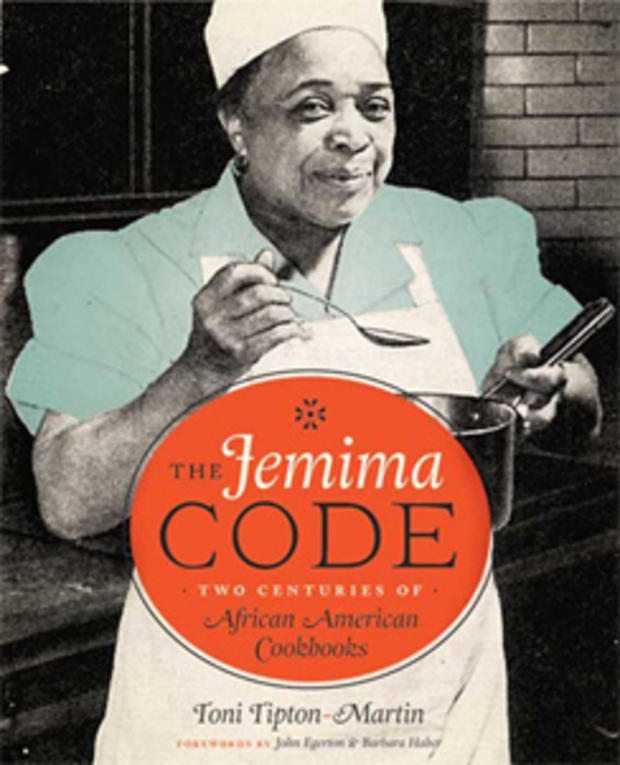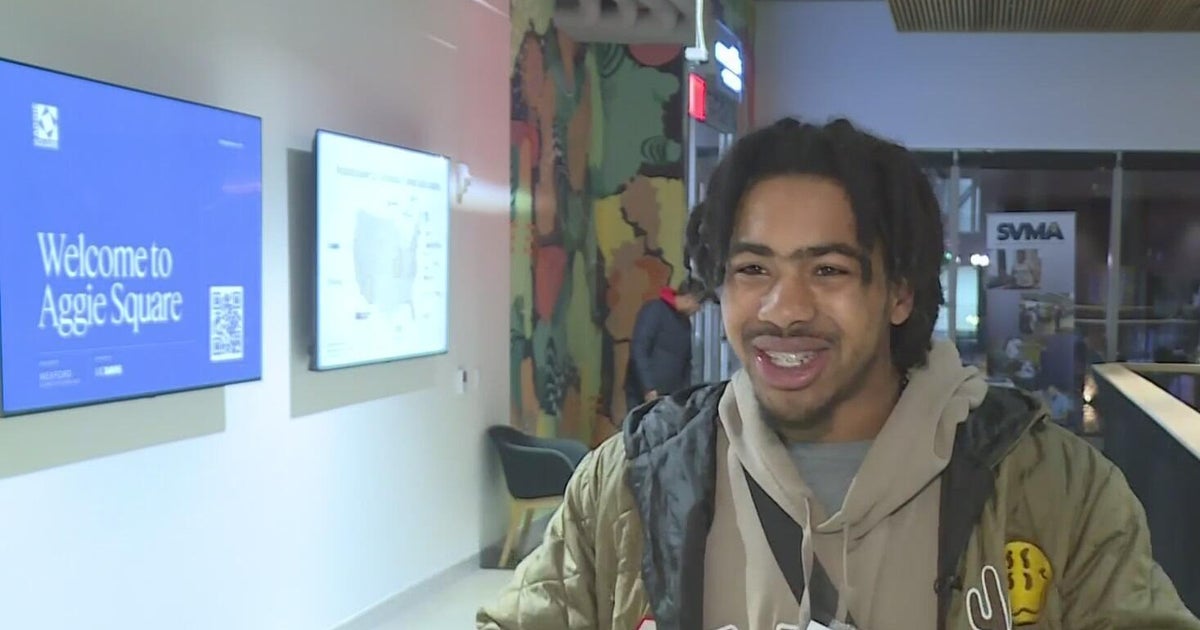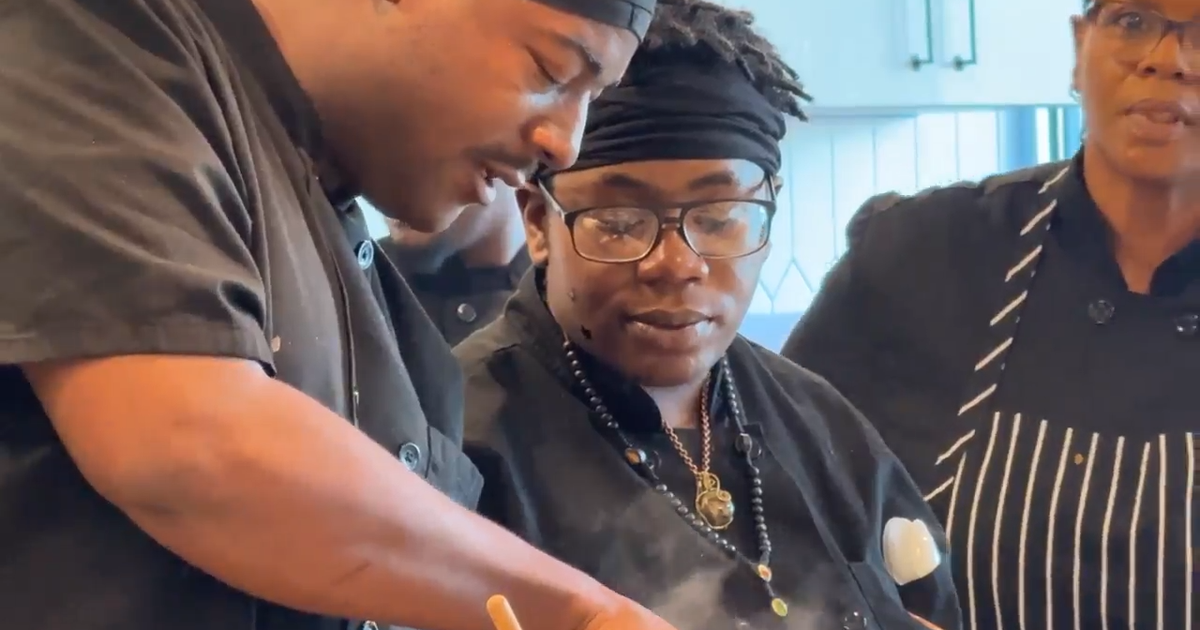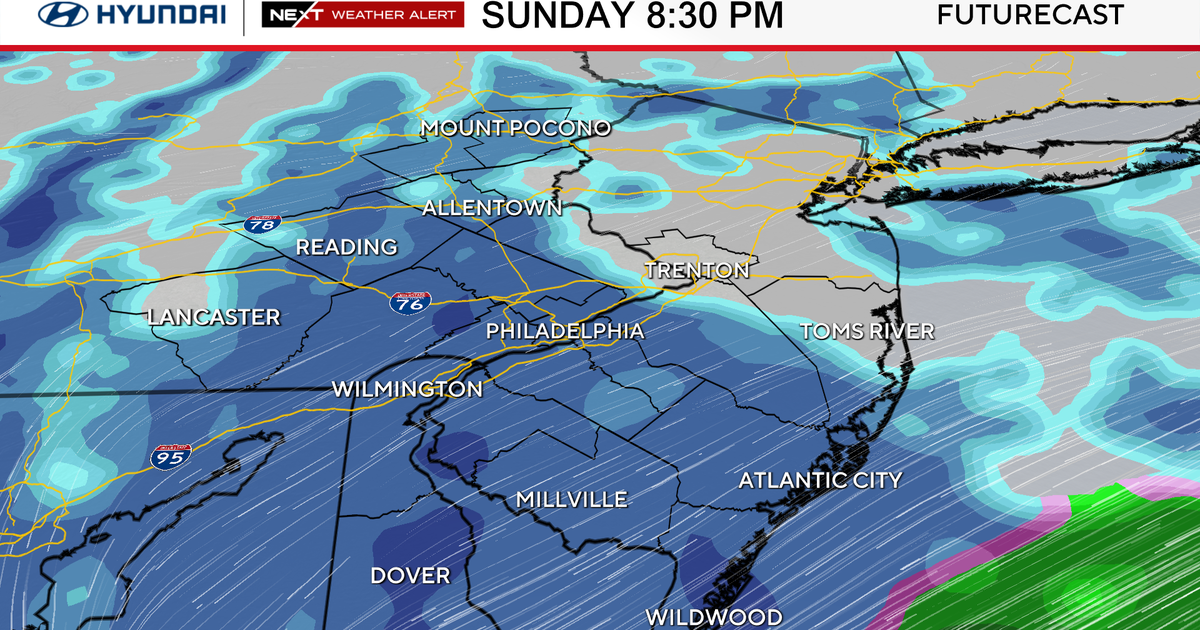"The Jemima Code": A history of African-American cooking
For generations, countless American cooks of great talent have been denied their proper place at the table. Now Michelle Miller tells us one woman is working to give them the recognition they deserve:
Her smiling face has been selling pancake mix since 1889: Aunt Jemima, one of the most recognizable, enduring and, yes, controversial icons in the world of commercial cookery … a happy plantation mammy who had very little to do with the reality of slavery.
“The idea of a mammy was a constructed image,” said food writer, journalist and cook Toni Tipton-Martin. “And Aunt Jemima was just an additional myth on top of a myth.”
Tipton-Martin set out to uncover the real faces and real stories of African-American cooking in “The Jemima Code.”
It was conceived, she said, as a beautiful coffee table book “that would contradict the negative, degraded image of this enslaved woman in a box.”
Tipton-Martin’s own collection of more than 300 rare and historic cookbooks by African-Americans was an important part of her research.
“Cookbooks are a way women, in particular, find their identity,” she told Miller. “The recipes that they choose, the stories that they tell about themselves -- all that is very unique to each individual writer.”
Malinda Russell was a free woman of color who published her cookbook in 1866. “She credits the women in the community, the white women, who helped her bring her book to print,” said Tipton-Martin. “It’s just a really lovely expression of community that existed between the women.”
Chef Lena Richard had her own TV cooking show in New Orleans well before Julia Child took to the airwaves.
“What we learn about her is how she thought of herself,” Tipton-Martin said. “She portrays herself as a lady.”
Richard’s own cookbook was self-published in 1939. James Beard lobbied Houghton Mifflin to publish it, which they did in 1940, under the title “New Orleans Cookbook by Lena Richard.” But they removed her image.
Toni Tipton-Martin hopes these cookbooks, with their stories and recipes, will provide a richer, truer picture of African-American contributions to the American table.
“There’s much more to our cooking, and who we’ve been culinarily speaking,” she said. “The artistic aspects are evident in these books.”
And isn’t that what Thanksgiving is all about? Sharing food and stories, and celebrating our commonality, and our differences.
- Get a taste of our other “Food Issue” features!
- Hungry? Check out our index of recipes and menu suggestions from top chefs, cookbook authors, and the editors of Food & Wine magazine
For more info:
- tonitiptonmartin.com
- thejemimacode.com
- “The Jemima Code: Two Centuries of African American Cookbooks” by Toni Tipton-Martin (University of Texas Press)
Lucille’s, Houston




